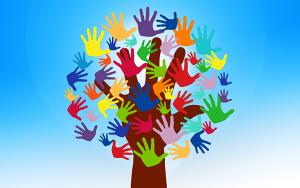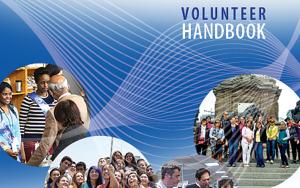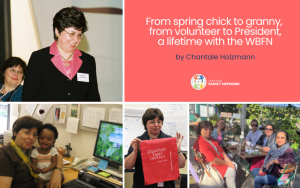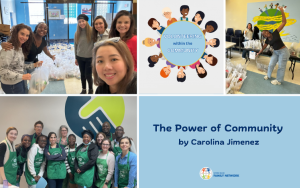The decision to end a marriage is not one that is taken lightly or without information. Getting a divorce is an experience that drains you both emotionally and financially. There are the emotional issues surrounding the break-up of a family, and the legal and financial issues related to the break-up of a household. The reality is that getting a divorce requires getting legal advice, and good legal advice is expensive.
Chapter 4 of the WBFN resource manual “Planning Makes a Difference” provides information about the emotional and legal aspects of divorce. Some of that information is worth repeating here. Going through a divorce is a difficult experience, and those involved are likely to suffer a wide range of emotions including depression, anger, fear, loss of self-esteem and a sense of failure. There may be physical symptoms as well, such as tightness in the chest or throat, lack of energy and inability to concentrate.
Help is available for spouses going through the trauma of a divorce. The Family Consultation Service is available 24 hours a day. Call 202-628-5104. If you would prefer to speak to a counselor in a language other than English, leave a message and say which language you prefer to use. Someone will call you back within 24 hours. Chapter 4 of “Planning Makes a Difference” also provides a list of support services in the Washington area available to people whose marriages have ended.
The manual also provides useful information about hiring a lawyer and using legal services wisely. Of particular interest are the list of questions to ask when interviewing a lawyer (page 4.6), and the guidelines for keeping legal costs down (page 4.7).
It is important to keep in mind that good legal advice is a good investment
Too often spouses accept divorce settlements that are financially unfavorable or noticeably skewed in favor of the other party. The most common explanation is that the spouse, lacking financial resources, could not afford experienced legal advisors and therefore was represented by inexperienced counsel. WBFN members are strongly advised to hire the best lawyer they can.
It has been suggested that if necessary, taking a loan to cover the cost of hiring expert legal representation, could be a good investment.
Divorce cases involving Bank couples can be complicated, particularly when G-4 visa status is a factor. It is wise to select a lawyer who is familiar with the regulations governing the G-4 visa, as well as provisions of the Violence Against Women Act.
Educate yourself: Lawyers charge for their time. So to make the best use of the time you are paying for, educate yourself before meeting with a lawyer, and avoid learning about things you could have discovered for yourself.
There are many ways in which you can educate yourself.
The local jurisdictions have prepared material to provide basic information. These two pamphlets are available:
1] Legal Rights in Marriage & Divorce in Maryland, printed by the Maryland Commission for Women and The Women’s Law Center of Maryland. Call 410-767-7137 for copies.
2] Understanding Your Domestic Relations Rights in Virginia, produced by the Metropolitan Richmond Women’s Bar Association. For information call The Women’s Center in Vienna, Virginia. Call 703-281-2657.
There are useful books available in the public library. Here are some that can provide helpful general information:
2. The Batterer (published in 5 plus languages including French and Spanish), by Dr. Don Dutton
3. It’s Not my Fault, How Healing Relationships Change the Brain, by Dr. Patricia Romano McGraw
4. Violent Partners, A Breakthrough Plan for Ending the Cycle of Abuse, by Dr. Linda Mills
5. Change from Within, Diverse Perspectives on DV in Muslim Communities, Edited by Maha Alkhateeb and Salma Abugideiri
6. Coercive Control: How Men Entrap Women in Personal Life by Evan Stark
7. Why Does He Do That by Lundy Bancroft
8. When Dad Hurts Mom: Helping your Children Heal the Wounds of Witnessing Abuse by Lundy Bancroft
9. Should I Stay or Should I Go: A Guide to Know if Your Relationship Can and Should Be Saved by Lundy Bancroft
10. The Verbally Abusive Relationship: How to Recognize It and How to Respond by Patricia Evans
11. Controlling People: How to Recognize, Understand and Deal With People Who Try to Control You by Patricia Evans
12. Divorce and Money, How to Make the Best Financial Decisions During Divorce by Violet Woodhouse.






